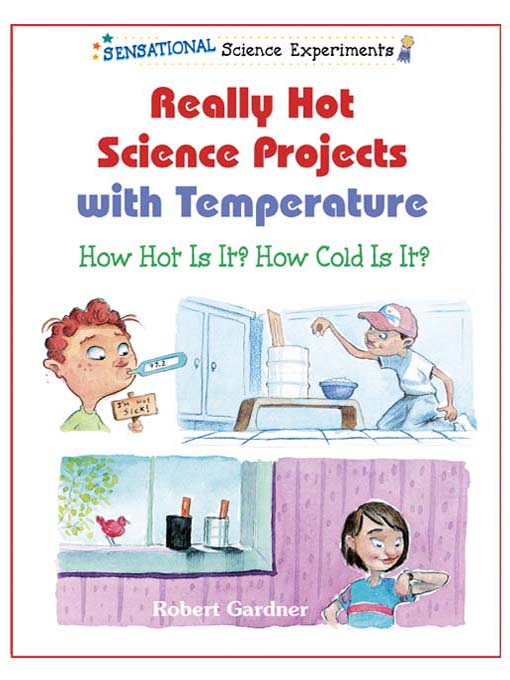What is the warmest place in your house? Why should you wear light-colored clothing if you want to stay cool? Why is it cold in the winter and hot in the summer? This book lets you perform lots of fun experiments while learning all about temperature. Using simple materials, you can do everything a scientist does: conduct experiments, keep records, and draw conclusions from what you have learned. You will also get many ideas for follow-up experiments in case you decide to enter a science fair. The colorful illustrations make the book fun and easy to read. Gather up your materials and get ready to learn all about temperature!
- Available now
- New eBook additions
- New kids additions
- New teen additions
- Most popular
- Try something different
- See all ebooks collections
- Available now
- Books to Movies on Audio
- New audiobook additions
- New kids additions
- New teen additions
- Most popular
- Try something different
- Thrilling Listens
- Road Trip!
- Always Available Audiobooks
- See all audiobooks collections



